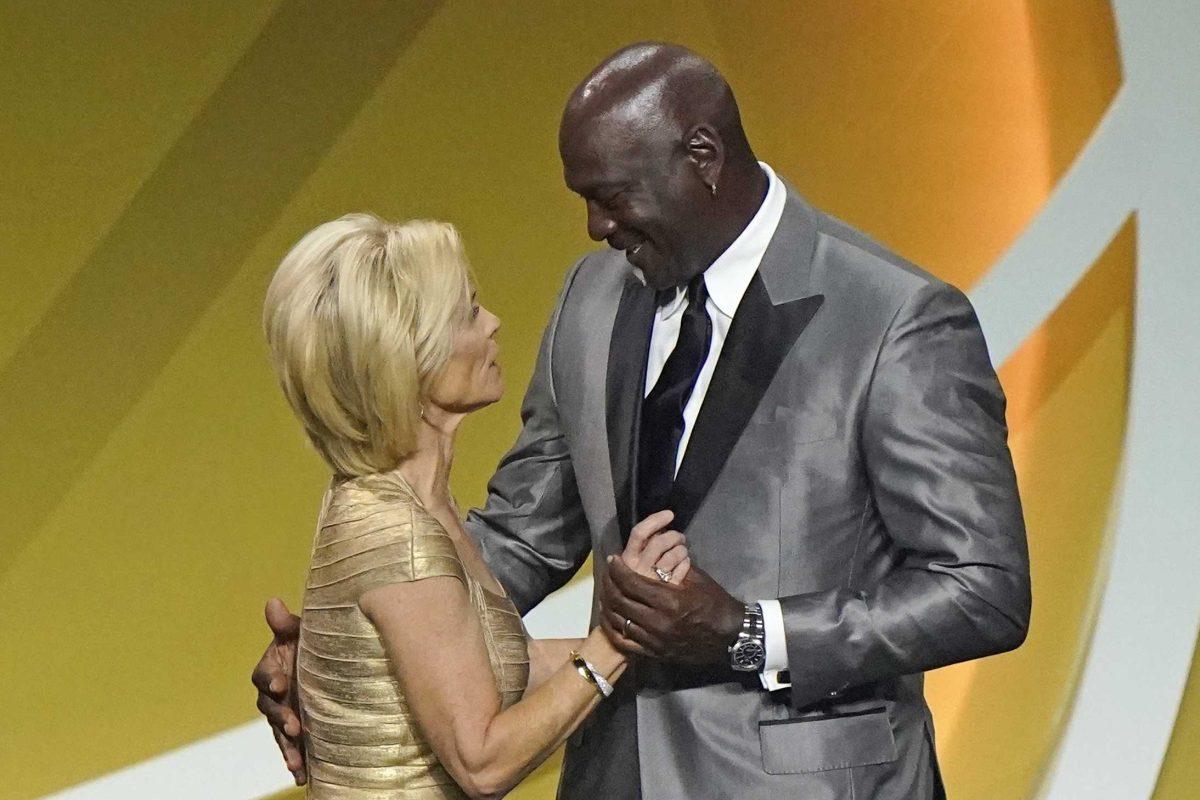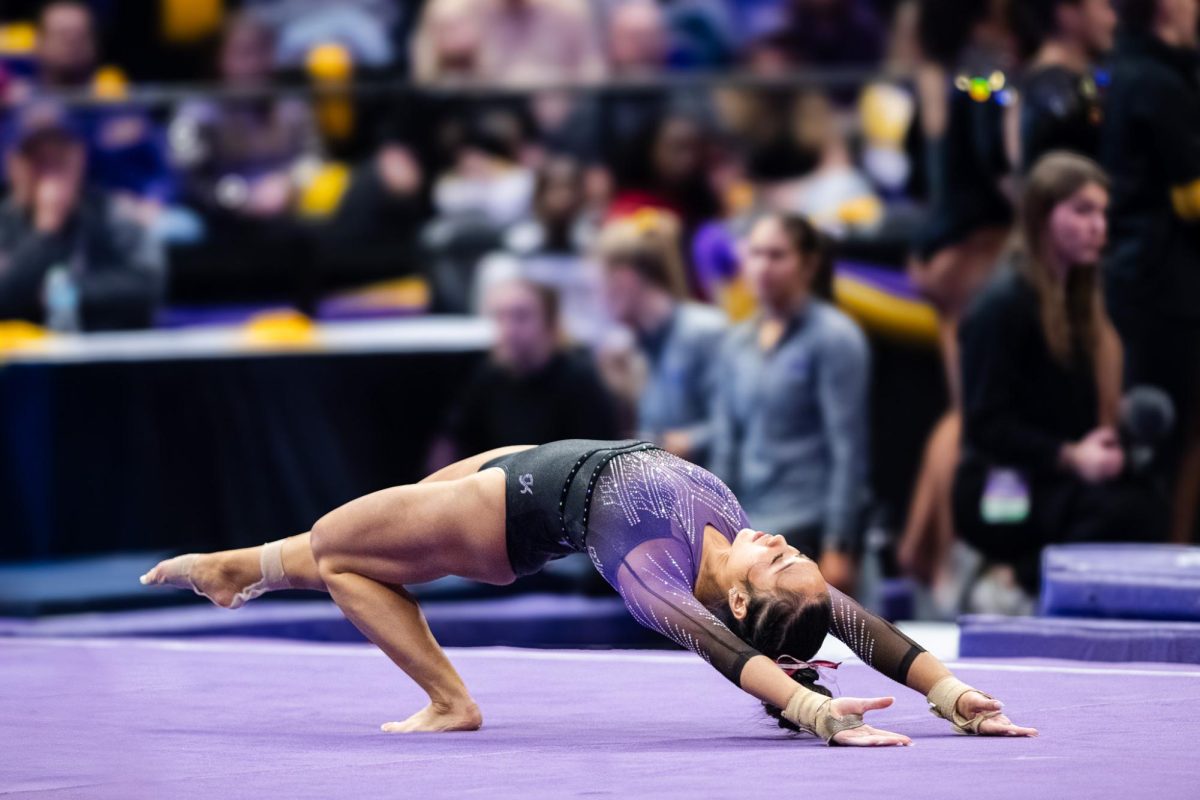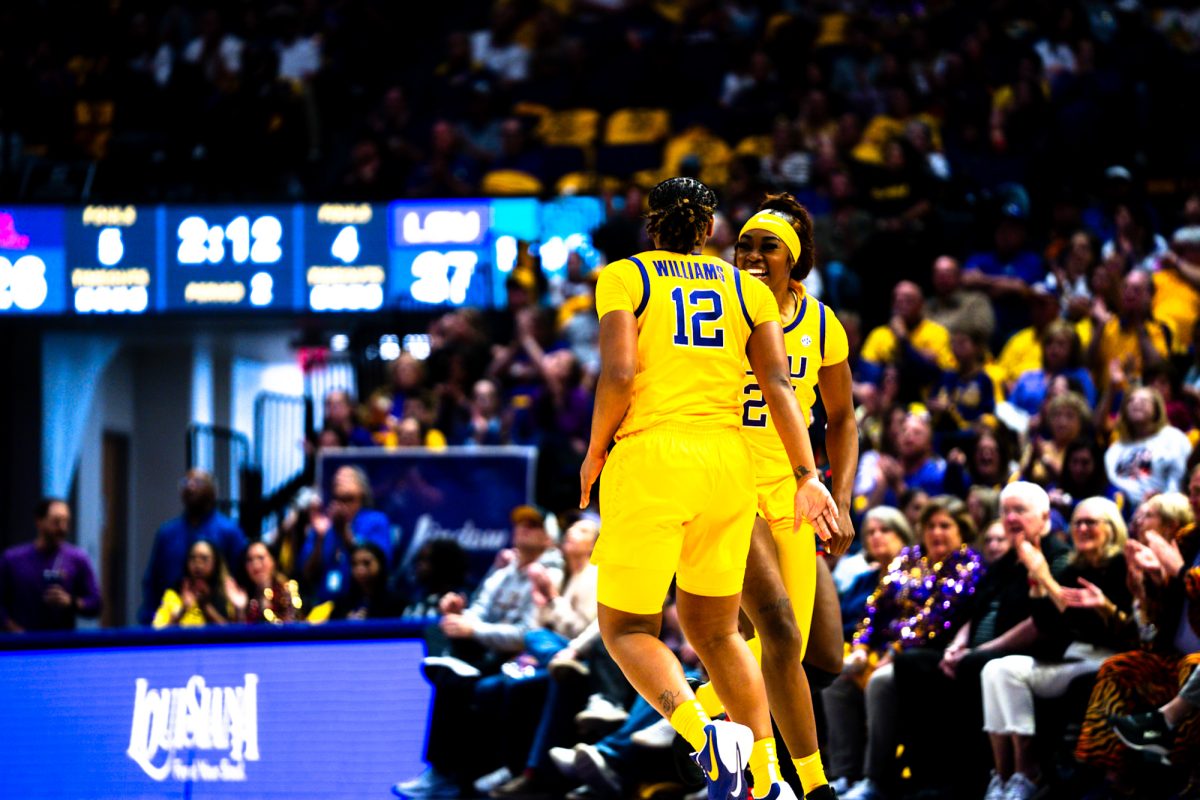Michael Jordan, the greatest player to ever bounce a basketball, stood up from his seat at the Naismith Memorial Basketball Hall of Fame’s enshrinement ceremony, took Kim Mulkey’s hand and guided her up the steps. It was time for Mulkey to accept her induction into the hall.
Mulkey is the only person in college basketball history to win national championships as a player, an assistant coach and a head coach. She led the Baylor Bears to three national championships in 21 seasons as head coach. She won two national championships as a tough-nosed point guard at Louisiana Tech, including the first ever NCAA women’s basketball championship. And now, she’s a hall of famer.
As the diminutive Mulkey stood behind the podium, she shot a glance at the 6-foot-6 Jordan, who smiled and laughed uncomfortably under her imposing stare.
“Michael, I’m incredibly honored,” Mulkey said. “I’m amazed that a kid from Tickfaw, Louisiana, could find herself in the company of giants.”
That wasn’t a dream. That woman is from Louisiana, she is the head coach of LSU’s women’s hoops program, and Jordan is her opening act. For a coach worthy of that introduction, LSU had to come up with Mulkey money. They’ll pay the hall of famer nearly $3 million annually, a steep increase from her predecessor, Nikki Fargas’, meager six-figure salary.
Every year Mulkey will pocket slightly more than her counterpart Will Wade, who earns $2.5 million a year. As LSU learns how to comply with Title IX, the federal law that protects against sex discrimination, Mulkey’s Hall of Fame induction can teach the embattled university a lesson.
LSU will not be acting in the true spirit of Title IX until Mulkey’s annual earnings far exceed Wade’s.
Pay close attention to Jordan. Think of all his good friend Mulkey had to accomplish to earn equal compensation to Wade, who, on a national standard, is an average coach with a modest resume. In his four seasons in Baton Rouge, Wade has given LSU arguably more compliance headaches than winning basketball. Mulkey is far more accomplished.
Still, LSU deserves credit for investing equally in its two hoops programs. The women will soon reap the spoils of that investment, as Mulkey molds the program in her image and likeness. She’ll welcome you into the PMAC with a southern charm and defend her turf with a rural grit. Stand in her way, and Mulkey will “knock you right in the face,” with a smile on hers.
Mulkey’s lightning rod status will keep the program in the headlines, and her magnetic personality will draw fans to games. The increased attention will bring more money into the athletic department, and the brighter spotlight will create more opportunities for her players, just in time for the NCAA name, image and likeness storm to make landfall. The Title IX gods will smile on LSU for closing the opportunity gap between its men and women hoopers.
But at least 26 Division I men’s basketball coaches earn north of $3 million a year. Next season, at least 26 men’s coaches will earn more than Mulkey, for whom LSU flew in a private jet, rolled out a purple carpet and held a grandiose homecoming ceremony. Trumpets blared, flames roared and smoke billowed as a Louisiana girl made her triumphant return.
In a perfect world, public universities wouldn’t inflate the salaries of state employees, competing to outspend each other on bells and whistles for athletic programs. As the pandemic taught us, our public schools wouldn’t play that dangerous game. The NCAA would allow, say, a more direct way of investing in their labor. It wouldn’t force its member schools to pay that exorbitant price for amateurism. There simply isn’t enough money for the players, we’re told.
“No coach stands here without having great players,” Mulkey said. “I’m a very small part of the basketball world. Because those players choose to listen to you or ignore you, and I’ve been blessed that they believed in me, they embraced me and they allowed me to push them beyond places they thought they could ever go.”
“Ironic, isn’t it? Coaches get to go into hall of fames, but we don’t do it without players. You just don’t do it without players. Thank you to the bottom of my heart for how you can make coaches look wonderful.”
But we don’t live in that world. In this crazy thing called college sports, a brand new coach is the ultimate symbol of a school’s investment in its athletes. In this world of accelerating coaching salaries, LSU chose to tap the brakes. They could’ve set a new price for the top women’s coaches, forcing other schools to make significant investments in their hardworking, deserving female athletes, giving them the tools to make those investments worthwhile. But LSU stopped at Wade’s $2.5 million. That’s equality, right?
In a world in which universities are in true Title IX compliance, Mulkey’s salary would match her status as one of the top basketball coaches in the country — for both men and women. But at LSU, she’ll have to settle for the top-30.
Jordan held Mulkey’s hand as she descended the steps. After she finished that speech, she’ll look to lead the LSU women’s basketball program to the promised land, returning another championship to her home state.
Even after entering the Hall of Fame with an escort from Michael Jordan, Mulkey still has more to prove.







